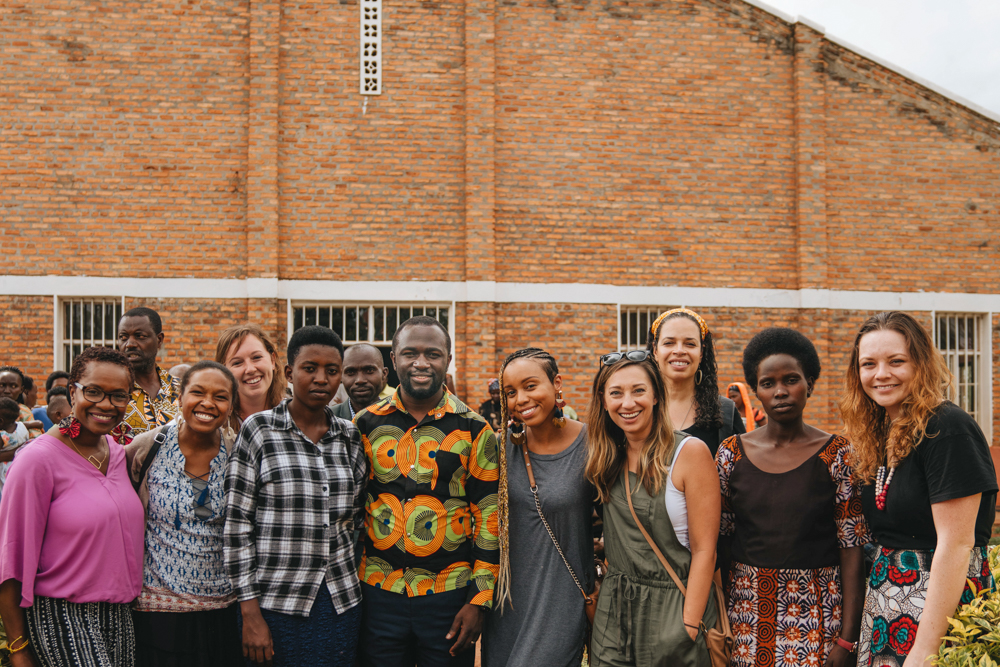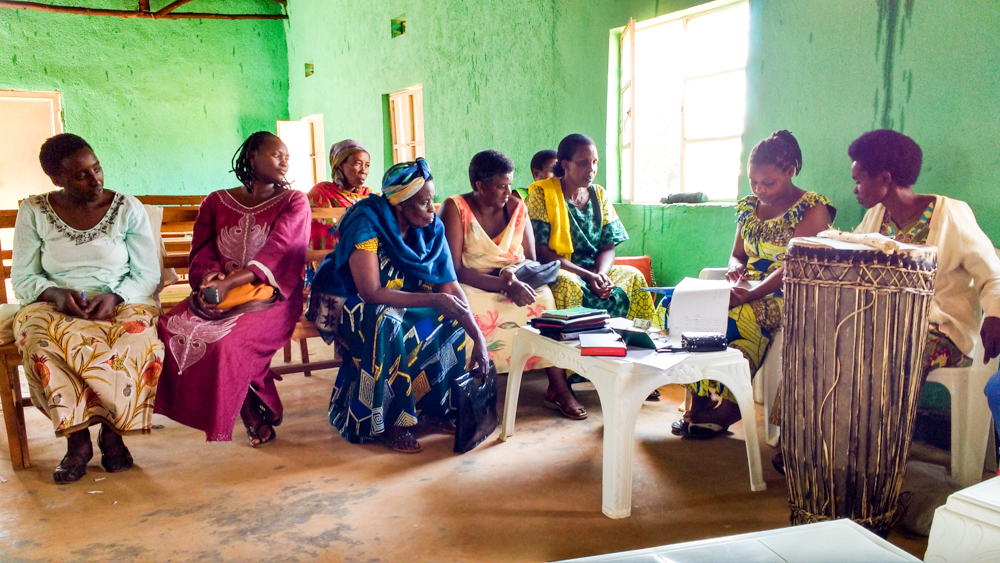by Robert Gonza, Quality Assurance Officer (HOPE Rwanda)
When I started working with HOPE Rwanda, I didn’t know if I believed in savings groups.
My job in quality assurance includes interacting with our field partner staff, training them about quality assurance processes like reporting documents, attending monthly mentoring meetings, and visiting and encouraging saving groups. I enjoyed my job and my team, but I was not always very sure how savings groups were transforming people’s lives.
Almost anyone you ask at HOPE Rwanda will be quick to share the statistics of how the saving groups are transforming lives—how many families we serve, how much they’ve saved, the number of cows, goats, and pigs they’ve purchased with their savings. Three years later, I now myself could share all these things. And I thought that the numbers were the most important things about these savings groups.
But I was wrong. They are about way more than just the savings, the number of loans, or those who attended the meeting—or pigs or cows.
What is a saving group?
Usually, saving groups are formed by facilitators after receiving training from HOPE. These groups consist of between 15 to 25 people. The facilitator’s role is to continuously guide, train, and advise the saving group, especially their meeting structure: welcoming each other, worshiping through songs and thanksgiving, sharing the Word of God, contributing their savings, and finally ending the meeting.
 One morning changed my course of thought. After a 7-hour drive from Rwanda’s capital city of Kigali, and a 25-minute walk through the gardens and tall eucalyptus trees, I asked my friend, a church facilitator, where we were headed. She smiled and just waved me on. And right in the middle of those tall trees, there I saw the 28 ladies that make up the Urumuri (“Light”) savings group (pictured above).
One morning changed my course of thought. After a 7-hour drive from Rwanda’s capital city of Kigali, and a 25-minute walk through the gardens and tall eucalyptus trees, I asked my friend, a church facilitator, where we were headed. She smiled and just waved me on. And right in the middle of those tall trees, there I saw the 28 ladies that make up the Urumuri (“Light”) savings group (pictured above).
Since its inception, this savings group had maintained all its members, but their combined monthly savings was consistently less than 15,000 Rwandan francs (about $16 USD)—a very small amount for a group of this size. I thought, “Why are their savings this low? Do they not understand reasons for saving?” “I will let them know why this should be done,” I said to myself. Because you see, until then, my thought about saving groups was about only money.

Robert (center) with visitors from the U.S. and HOPE staff visiting a savings group
It was more than just savings.
As I continued to talk to the women, I learned that the group meets every week on Monday and Thursday, and they save only once every month, on the last Saturday of each month. Beyond that, they dedicate one Saturday each month to working on basic house projects for one of the members of the group.
Every Monday and Thursday the members take turns tilling and working in each other’s gardens. When I asked one the ladies, Antionette Uwizeye, whose garden had been tilled that day, amidst tears and sobs and smiles, she responded:
When people see us, they feel we are a bunch of poor ladies. But I say no. I could have paid 50,000 francs (USD $54) to till this land, yet these sisters have done it for me for free. I was living in a house where anyone could see me from the outside. [It] looked like threaded walls. Yet these ladies came and put me in a respectable house. I will never leave this group. I always look forward to this meeting. Ndabakunda (‘I love them’).”
A whopping 400,000 francs (USD $432) is what the ladies were giving to each other! They are lighting up each other’s lives and the community. Yet, in my monthly reported numbers, these activities had not appeared in any form. I came to realize that the reflected numbers in my reports were about 4% of what was being offered to each member in terms of support.
I was wrong about what these groups were all about. Saving groups are where love is shown, the discouraged get their strength, the broken get a shoulder to lean on; and to the blind, a light is shone. Saving groups are about more than just saving money.
 Robert Gonza serves as a quality assurance officer at HOPE Rwanda. His job includes supporting, encouraging, and listening to underserved communities as they strive to achieve their dreams through saving groups. He enjoys traveling, reading, and telling stories. Robert is married to Annet, and they live in Kigali, Rwanda, with their three children David, Ethan, and Eliana.
Robert Gonza serves as a quality assurance officer at HOPE Rwanda. His job includes supporting, encouraging, and listening to underserved communities as they strive to achieve their dreams through saving groups. He enjoys traveling, reading, and telling stories. Robert is married to Annet, and they live in Kigali, Rwanda, with their three children David, Ethan, and Eliana.
Watch this short video to see how families living in poverty can put their gifts and talents to work and flourish.
















